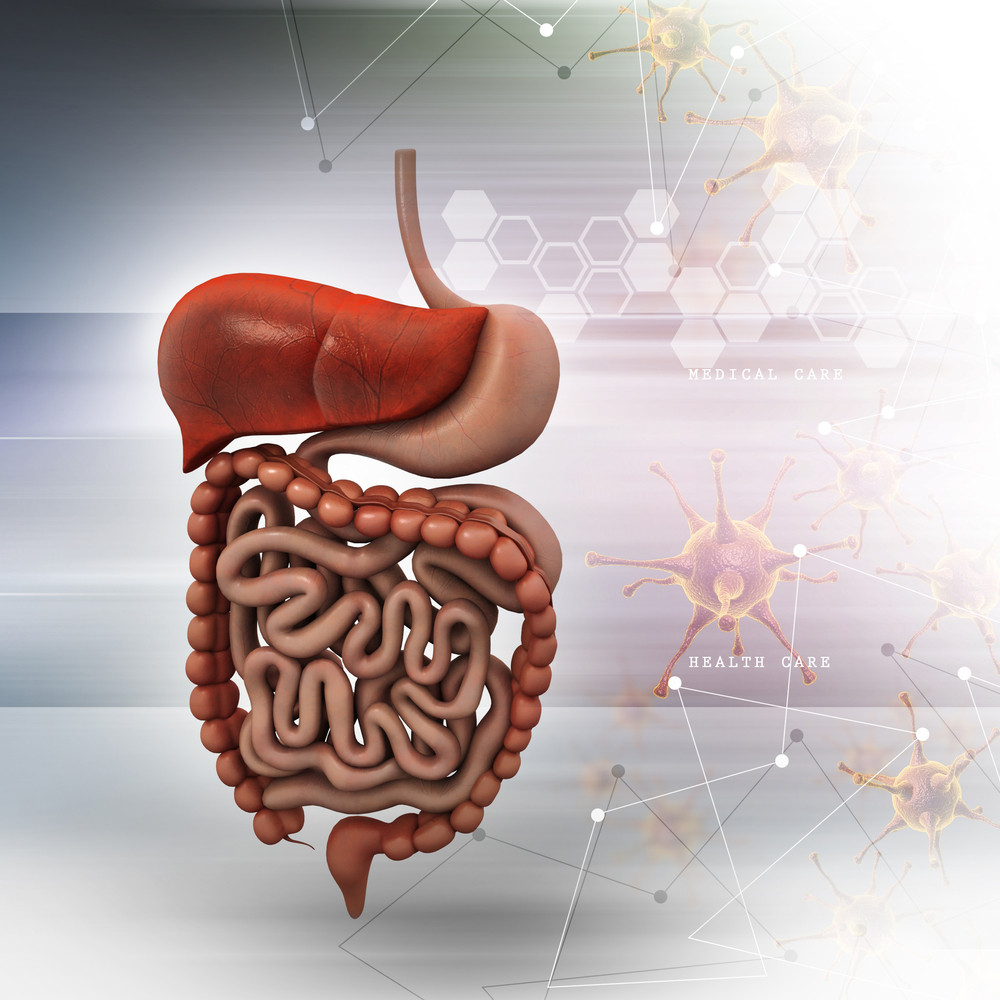ENT-01 May Help Slow Parkinson’s Progression by Targeting Alpha-Synuclein Clumps Found in Gut, Review Finds
Written by |

Enterin’s ENT-01, a compound that targets and reduces the accumulation of alpha-synuclein in nerve cells found in the gut, may slow the progression of Parkinson’s disease, according to a review study.
The review, “Gastrointestinal Immunity and Alpha-Synuclein,” was published in the Journal of Parkinson’s Disease.
A hallmark feature of Parkinson’s is the progressive degeneration of brain cells due to the accumulation of toxic clumps of the protein alpha-synuclein, called Lewy bodies.
Some scientists believe Lewy bodies form in the enteric nervous system — the network of nerves that innervate the gastrointestinal (GI) tract — then spread to the brain, where they gradually damage and destroy brain cells.
For that reason, many researchers are now investigating the possibility of using compounds that specifically target and reduce the build-up of alpha-synuclein in nerve cells found in the gut to restore the function of the GI tract in people with Parkinson’s, and eventually slow down the progression of the disease in the central nervous system (composed of the brain and spinal cord).
“There is growing evidence that [Parkinson’s disease] may start off in the gut,” Michael Zasloff, MD, PhD, founder of Enterin, scientific director of the MedStar Georgetown Transplant Institute and senior author of the study, said in a press release.
“The concept is that aggregates of the protein alpha-synuclein, thought to play a key role in the disease, arise within the enteric nervous system (ENS) and travel up the peripheral nerves to the central nervous system (CNS) where they ultimately cause inflammation and destruction of parts of the brain. Targeting the formation of alpha-synuclein aggregates in the ENS may therefore slow the progression of the disease,” Zasloff said.
In normal conditions, alpha-synuclein helps protect the nerve cells found in the GI tract from viral or bacterial infections by calling immune cells into action.
However, when a person develops chronic GI infections or their gut cells are no longer able to control which substances should be absorbed and which should be discarded as waste, alpha-synuclein may start to accumulate inside nerve cells from the gut, becoming highly toxic and possibly contributing to the onset of Parkinson’s.
“Based on this perspective, we are testing the hypothesis that by targeting the ENS with ENT-01, a compound that can inhibit the intracellular aggregation of [alpha-synuclein], we can restore ENS functioning in the short term, and possibly slow the progressive deterioration of the CNS in the long term,” the researchers wrote.
ENT-01 is an artificial compound derived from squalamine, a substance originally discovered in the liver and gall bladder of the dogfish shark. Preclinical studies have shown that ENT-01 is able to displace alpha-synuclein from the membranes of nerve cells found in the gut, restoring their normal electric activity and reducing the formation of toxic aggregates.
An open-label, Phase 2a clinical trial called RASMET (NCT03047629) in 2018 demonstrated that treatment with ENT-01 lessened constipation, a common GI symptom of Parkinson’s, in 80% of the 50 patients participating in the study.
“Surprisingly, we also observed benefits in both motor and non-motor symptoms. The RASMET study demonstrated that it is possible to correct long standing dysfunction of the ENS which might have been assumed to be irreversibly damaged,” the researchers wrote.
The team is currently leading a double-blind, placebo-controlled, Phase 2b trial called KARMET (NCT03781791) to investigate the effects of ENT-01 tablets on constipation and other neurologic symptoms of Parkinson’s in a group of 110 participants.





